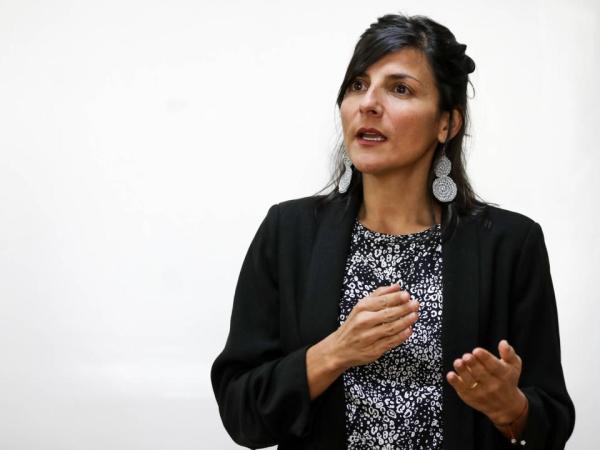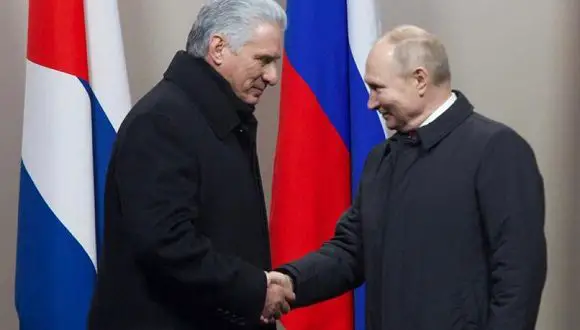The Minister of Mines and Energy, Irene Vélezfaces for the second time a motion of no confidence in the Congress. This time, she was quoted by more than 20 opposition senators as Paloma Valencia, María Fernanda Cabal, Paola Holguín, Lorena Ríos, Miguel Uribe, among others.
It should be remembered that on December 6 of last year the vote for the first debate of this type faced by the head of the portfolio was held.
(Government responds to complaints about cracks in a new alternate road in Cauca).
This means that In little more than three months, Vélez has had to face Congress on two occasions to render accounts for his work in office.
The motivation of the senators for this summons is the presentation of figures on the natural gas resources and reserves that the country has and that Vélez presented in several scenarios including his participation in the World Economic Forum in Davos, Switzerland.
(The reasons why Petro ended the cessation with the ‘Gulf clan’).
“It is a fundamental debate, to prevent this government from continuing to put resources for social investment at risk. We continue in defense of Colombians, of the ideological intransigence of this Government; especially the damage done by the lack of knowledge and inexperience of the minister, and the fundamentalism of the president in this matter”, said Uribe Turbay.
The debate will take place in the plenary session of the Corporation from 2 in the afternoon. Voting will take place on March 29.
(Crude oil reserve life index would be around 8 years).
The numbers of contention
In November 2022, the Ministry presented a document titled “Balance of hydrocarbon contracts and resources available for the Just Energy Transition”.
In it, it is stated that “It is possible to infer that the contingent resources, both from the Sinú 9 block and from the offshore discoveries, can supply the national demand and, even, produce a surplus in its production until the year 2037. If we take into account the prospective resources of this supply ( of gas) can be extended until the year 2042”.
(Colombia will continue with the exploration of liquid fuels and gas).
Based on these data, Both the minister and President Gustavo Petro himself pointed out that there was enough gas to make the energy transitionwith which it was not necessary to grant new hydrocarbon exploration and production contracts.
However, several experts and voices in the sector expressed their concern regarding the figures that were exposed there.
Armando Zamora, former president of the National Hydrocarbons Agency (ANH), explained, for example, that when a balance of this type is made, the proven reserves (1P) are the only ones that can be counted on, given that 90% of the probability can be placed on the surface, while the probable ones (2P ) reach 50% and the possible ones (3P) reach 10%. Added to this is that resources such as contingent or prospective resources should not be added to resources.
(There are 296 solar megawatts installed in 27 projects).
This, because they are inferences (in the case of prospects) and the discovery has not yet been made. This means that their probability of being placed on the surface is less than that of a resource already discovered.
This led the ANH to estimate in 2022, in its end-of-period report, that in order to guarantee the load of the refineries (that is, internal consumption) about 200 oil E&P contracts are needed until 2040.
(The ‘maromas’ of Colombians to counteract inflation).
More recently, the ministries of Mines and Energy, Commerce and Finance indicated that They are awaiting the report on resources and reserves that the Agency will present in May and that will give an account of the useful life of oil and gas reserves.
Based on this, the portfolios indicated that future decisions will be made on the granting of new hydrocarbon exploration and production contracts.
BRIEFCASE
















